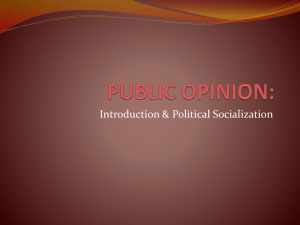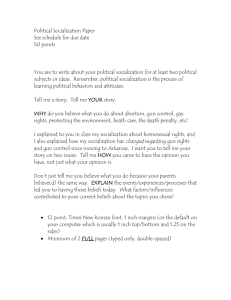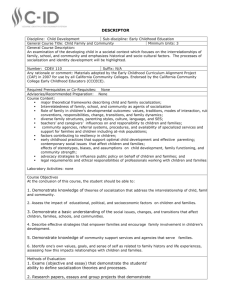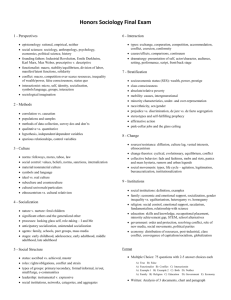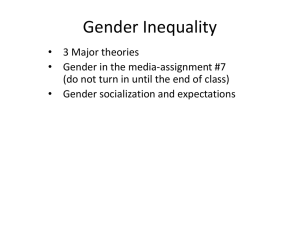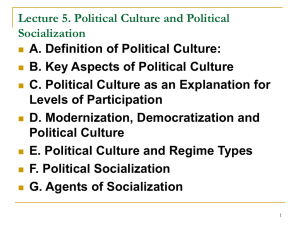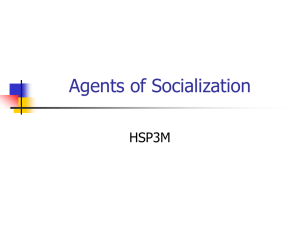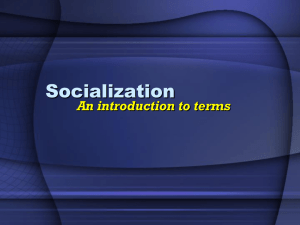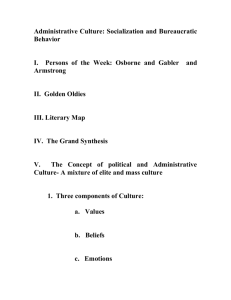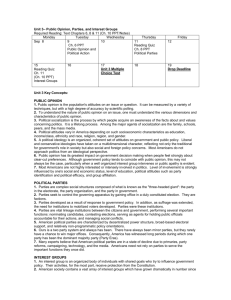Political Socialization and the formation of Political Identity
advertisement
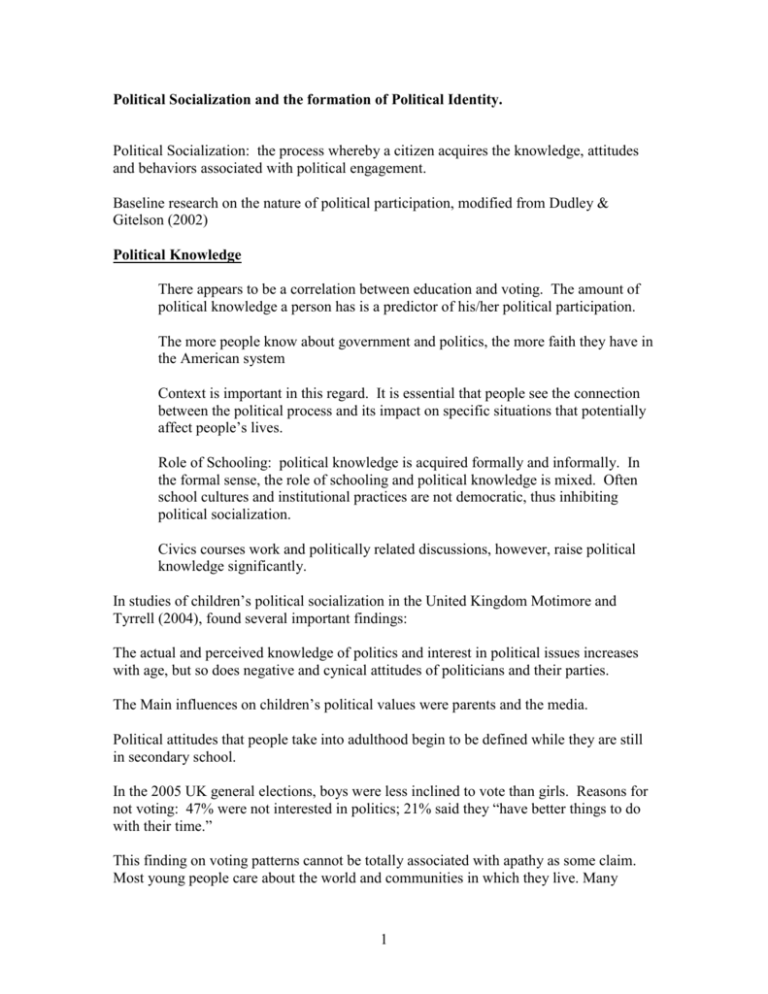
Political Socialization and the formation of Political Identity. Political Socialization: the process whereby a citizen acquires the knowledge, attitudes and behaviors associated with political engagement. Baseline research on the nature of political participation, modified from Dudley & Gitelson (2002) Political Knowledge There appears to be a correlation between education and voting. The amount of political knowledge a person has is a predictor of his/her political participation. The more people know about government and politics, the more faith they have in the American system Context is important in this regard. It is essential that people see the connection between the political process and its impact on specific situations that potentially affect people’s lives. Role of Schooling: political knowledge is acquired formally and informally. In the formal sense, the role of schooling and political knowledge is mixed. Often school cultures and institutional practices are not democratic, thus inhibiting political socialization. Civics courses work and politically related discussions, however, raise political knowledge significantly. In studies of children’s political socialization in the United Kingdom Motimore and Tyrrell (2004), found several important findings: The actual and perceived knowledge of politics and interest in political issues increases with age, but so does negative and cynical attitudes of politicians and their parties. The Main influences on children’s political values were parents and the media. Political attitudes that people take into adulthood begin to be defined while they are still in secondary school. In the 2005 UK general elections, boys were less inclined to vote than girls. Reasons for not voting: 47% were not interested in politics; 21% said they “have better things to do with their time.” This finding on voting patterns cannot be totally associated with apathy as some claim. Most young people care about the world and communities in which they live. Many 1 students in the UK study signed petitions, engaged in protest marches against the war in Iraq but only 2% helped with a political party. Politicians are little admired among young people. Those students who come from a background that is supportive of political discourse and awareness or those who have had some degree of formal or informal political education are more likely to find out more about the political process. The newspapers that students read tend to be those they find in their home. About half of the students (47%) read the national news, only a few (6%) read the political pages. The frequency of newspaper reading is an indicator of political interest. Non-voting parents – significant negative factor associated with political interest. Agents of Political Socialization There are a variety of agents that promote political socialization (Dudley & Gitelson, 2002; Sapiro, 2004). Family Education systems The media Political parties The Internet Nongovernmental organizations The military Government itself Political Identity According to Springboard (2003) national political identities are fluid and reflect shifts in power relations between social groups and the dynamics of political institutions to include specific groups and exclude others. According to Sapiro (2004) the world is full of people that have multiple and sometimes competing nationalities and citizenships. Global migration plays a role as well as the changing nature of political structures. For example, a person living in Scotland considers herself Scottish, British, and European (and votes in elections for parliamentary bodies representing all three). The explosion of nongovernmental organizations have created additional forms of political membership and political identity that may come into conflict with traditional governmental sources. 2 Role of globalization: a debate has emerged whether they spread homogeneous beliefs or fragment identities that become more focused on local political allegiance rather than global allegiances. The key point is that in an age of globalization, individuals have an increasing amount of CHOICE in where they play their allegiance. Dramatic Change in a political situation may change people’s political identity but research suggests this depends on the situation and context of the change. Historical Memory – learning why the founding of a nation was good, who caused a war or suffering, the stories that define a country, songs and rituals are all important emotional aspects of political socialization. This memory is often related to symbol creation, the writing of history, and the realities and myths associated with this history. Who is doing the writing is also of great importance. Change and Individual Lives – personal political experience also plays a role 3


